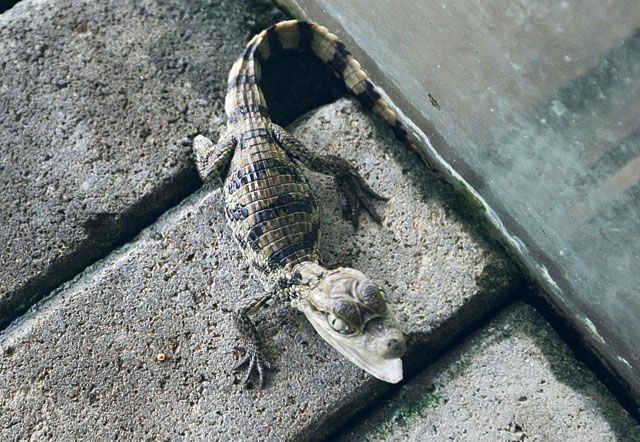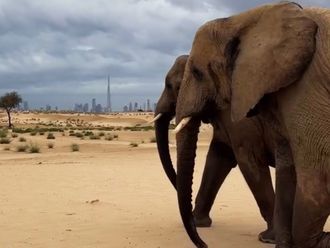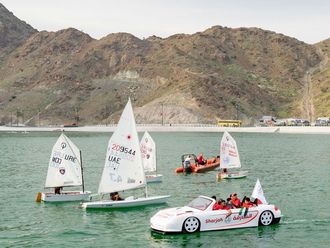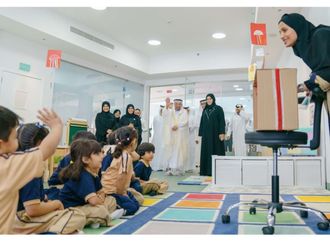Dubai: Harry, the juvenile Nile crocodile bought illegally as part of an undercover investigation by Gulf News, has been placed at the Dubai Zoo to be cared for permanently.
At 25 centimetres and just 50 grammes, he is too small to be placed in the pit with the 12 other adult Nile crocodiles at the zoo that have had residency there for the last twenty years, and measure up to four metres long.
Timeline: Illegal trade of wild, endangered animals in UAE
During his first year Harry will be housed in a heated terrarium where he can wallow in shallow water or climb and rest on higher ground, created by bricks.
Exposed: Illegal animal trade in Sharjah
"Adaptation is the problem," said Dr Mohammad Wazad, zoo veterinarian, who inspected the baby croc on his arrival before giving him a clean bill of health. "Mixing with other crocs will take a while. He is very small now and later they may fight," he said.
Because of his small size and young age, Harry's sex cannot yet be determined. He might end up being Harriet in a few months as he develops.
Wearing gloves, Dr Wazad picks him up to inspect his mouth, body and underbelly. "It's important to check the eyes, mouth and naval area as it can be prone to infection. Crocodiles are sensitive to pox, it is a viral infection," said Dr Wazad. "Next we check his phalanges [joints] on his claws."
Due to lack of space the crocodiles are not bred at the zoo and Harry will be the youngest and newest croc to join the congregation in six years. In time he will be moved to a smaller pen outdoors with access to a pool of water and 24-hour veterinary care, something no private owner could provide.
How much some exoctic pets cost in the UAE black market
Harry joins a plethora of other species that have all escaped the illegal animal trade in the UAE led by law-flouting smugglers.
Mohammad Saleh Al Najjar, head of the zoo section at Dubai Municipality, said more border patrols are needed between countries in the Gulf to minimise the number of these animals that are confiscated and then dumped on the zoos.
Watch video: What IFAW has to say about illegal animal trade
An escaped cheetah in Jumeirah, a loose brown bear found near Al Mulla Plaza, and a monitor-lizard mistaken for a crocodile wandering around the streets of Al Rashidiyah have all caused havoc around the city over the past 20 years — and ended up in one place, Dubai Zoo.
"Owning these animals is very dangerous for residents and all people in their vicinity. Wild is the wild — you cannot capture animals like big cats or crocodiles and keep them as pets," said Al Najjar.













